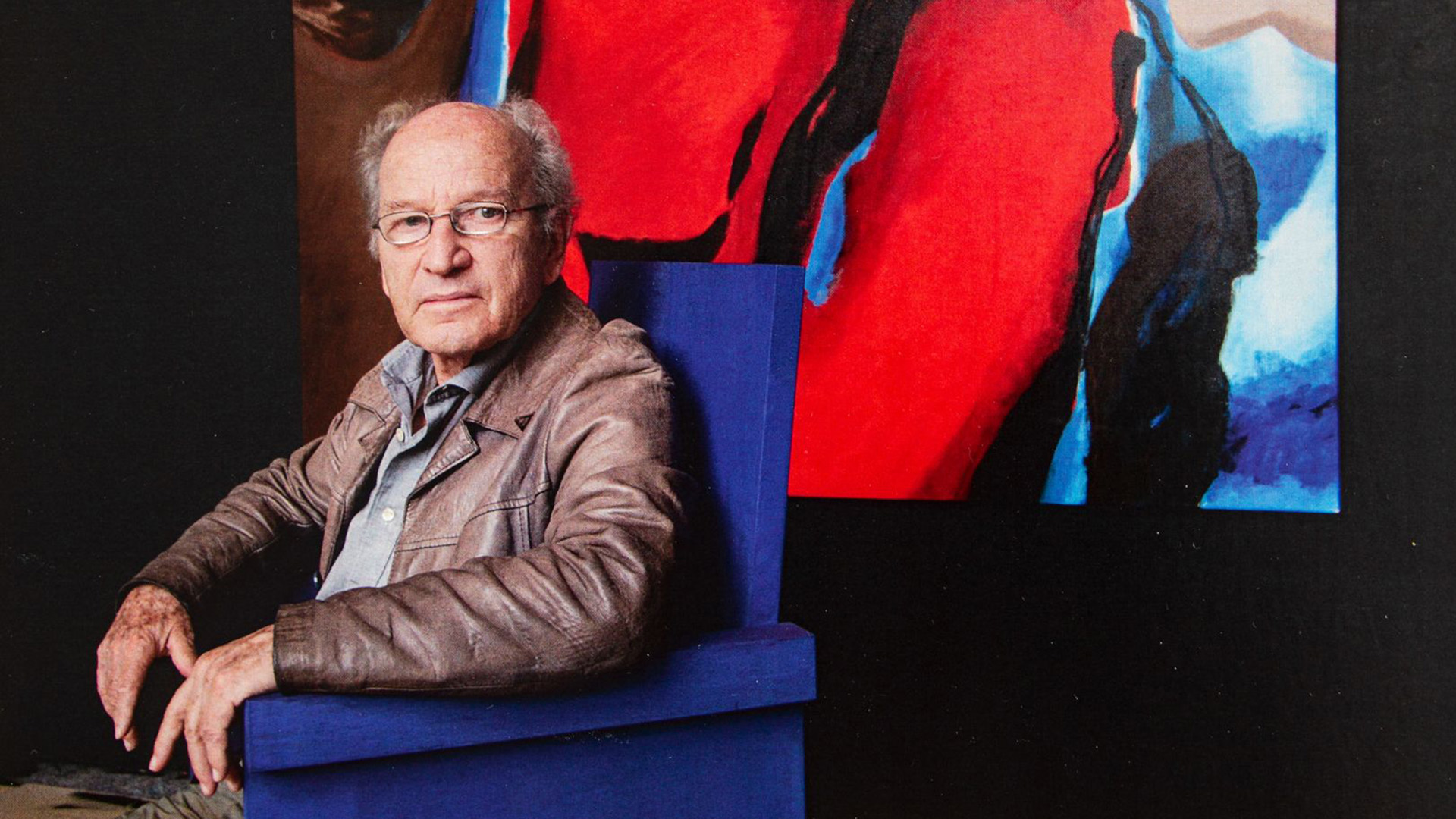Photo : Father Polykarp Uehlein OSB, cropped | courtesy of Abtei Münsterschwarzach
Our beloved confrere
Father Polykarp (Otto) Uehlein OSB
died in our infirmary at 10:10 in the evening on 23 March 2022.
Like a great mural in churches or exhibitions, like a rich library of ancient and recent literature, like a multi-sounding concert hall, so is the life of our deceased confrere. What is reported here can only be a sketch of that.
Fr. Polykarp was born in Amorbach, in the shadow of the former abbey, on 15 February 1931. The parents ran a coffee roastery and a specialty food store. His father Heinrich was a merchant, his mother Auguste, a secondary school teacher. Two brothers followed the first-born Otto, as Fr. Polykarp was named at baptism. The strong influence of the parental home was deepened by good school experiences in the Amorbach elementary school, in the secondary school until graduating in Miltenberg in 1949.
Otto then began to study theology in Würzburg. After two semesters he entered the abbey on 1 September 1950. On 11 September 1950 he was given the monastic name Polykarp, with which he later signed his endless works of art. On 12 September 1951, he professed his temporary vows, on 26 September 1954, his solemn vows. From 1951 to 1957 he was a student for his ministerial vocation in St. Ottilien and Würzburg and was ordained to the priesthood on 1 July 1956.
He was sent to study in England from 1957 to 1959 so as to qualify for the teaching profession. But art and music captivated the young student even more, so that from 1959 to 1963 art studies followed at the Städel in Frankfurt. Personalities such as Professor Burkhard and Georg Meistermann influenced the budding artist.
In the middle of this training, Fr. Polykarp was sent to Ndanda Abbey in Tanzania, where he was to illustrate the country’s religious books. He, who over the years was to become a great interpreter of the Scriptures, was never sent actually out with the missionary cross around his neck. Thus, Fr. Polycarp remained the painter-monk of Ndanda, Tanzania and of Münsterschwarzach from 1963 until the outbreak of his illness during his home leave in 2019. In Africa, his art is to be found in Tanzania, Kenya and Togo. In over fifty murals in churches, monasteries and hospitals, the message of the bible is proclaimed. To give permanence to this work, Fr. Polykarp also trained some African students in painting to become independent artists.
In Germany, Switzerland and the USA there are church buildings marked with the murals or stained glass windows of Fr. Polykarp. The rest of his paintings on canvas and paper, the serious and light as well as satirical paintings were shown in countless exhibitions between 1964 and 2021. Their appreciation has been made several times in other places. Here more should be said of the man Fr. Polykarp and with it, of course, of the art that reflects him.
Even at the time when priest and brother monks were divided into two classes, Fr. Polykarp had the reputation of being a “Father who is a brother” because of his closeness to people and heartfelt openness.
When in the 70s the change to the mother tongue came for the prayer in choir, he was an important collaborator in these projects in Ndanda as well as in Münsterschwarzach. He penned several hymns for our use in choir. The “ear of St. Joseph,” of which he spoke very forcefully, accompanied Fr. Polykarp the preacher for some years. No wonder, because the painter was also a musician. In the studio or from croaking record players in Tanzania its sound filled the room: Gustav Maler, Mozart or arias from operas.
Fr. Polykarp traveled through life with ancient and recent literature. Philosophy, novels, biographies and poetry lived in him. And in friendly conversations one was gifted with it.
For the 1980 illustrated book about Münsterschwarzach and its missionary work, Fr. Polykarp wrote the memorable text. He gave the book a title taken from the Rule Damit in allem Gott verherrlicht werde (That in All Things God May be Glorified). This is also a title of his versatile life’s work. Occasionally the free artist would doubt his monastic vocation. But St. Benedict promises “an open heart” as the final shape of the monastic journey. Such was Fr. Polykarp through and through showing how rounded his life was.
On Monday, 28 March 2022, we will celebrate the thanksgiving liturgy. Afterwards we will lay him to rest in the monastery cemetery.
Münsterschwarzach, 25 March 2022
Abbot Michael and the community of Münsterschwarzach
Abbot Christian and the community of Ndanda, Tanzania


